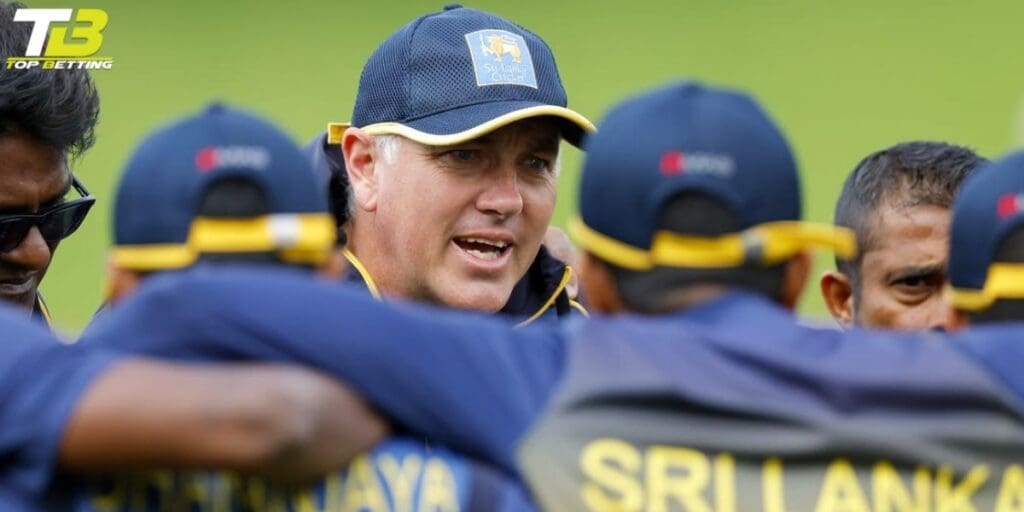
Chris Silverwood resigns as Sri Lanka head coach
Introduction
The world of international cricket has witnessed a significant shift as Sri Lanka Cricket (SLC) announced the resignation of Chris Silverwood from his role as the head coach of the national teams at various levels. This decision comes on the heels of a disappointing performance by the Sri Lankan team in the recent T20 World Cup, where they failed to advance to the Super Eights stage.
Silverwood’s Departure and Personal Reasons
In a statement released by SLC, Chris Silverwood cited personal reasons for his decision to step down from the coveted position. The Englishman, who had been at the helm of the Sri Lankan national teams since 2022, expressed his desire to return home and spend quality time with his family. “Being an international coach means long periods away from loved ones. After lengthy conversations with my family and with a heavy heart, I feel it is now time for me to return home and spend some quality time together,” Silverwood said.
Sri Lanka’s Lackluster T20 World Cup Performance
The ongoing T20 World Cup proved to be a dismal outing for the Sri Lankan team, as they failed to secure a spot in the Super Eights. They suffered losses against South Africa and Bangladesh in the Group Stage and could only manage one victory against the Netherlands. Their match against Nepal was washed out due to rain, leaving them with just three points and a third-place finish in Group D.
Mahela Jayawardene’s Resignation as Consultant Coach
Silverwood’s resignation was not the only high-profile departure from the Sri Lankan coaching staff. The Cricket Board also announced the resignation of former batter and skipper Mahela Jayawardene from the position of consultant coach of the national teams at various levels. Jayawardene’s tenure had been marked by mixed results, with the team securing the Asia Cup title in 2022 but performing poorly in the 2022 ICC T20 World Cup and the 2023 50-over World Cup.
Jayawardene’s Illustrious Playing Career and Coaching Contributions
During his playing days, Jayawardene was considered one of the greatest batters of all time, representing Sri Lanka in 652 international games and amassing 25,957 runs at an average of 39.15, with 54 centuries and 136 fifties. He was a key member of the Sri Lankan teams that won the 2002 Champions Trophy and the 2014 T20 World Cup, and finished as runners-up in the 2007 and 2011 50-over World Cups.
Jayawardene’s Coaching Tenure and Achievements
As a consultant coach, Jayawardene played a crucial role in implementing significant changes to the structure of the national team ecosystem and the High-Performance Centre. During his tenure, he also worked with the U19 and Sri Lanka ‘A’ teams, sharing his vast experience and expertise with the next generation of cricketers.
Challenges Faced by Sri Lankan Cricket
The recent departures of Silverwood and Jayawardene from the Sri Lankan coaching staff come at a time when the country’s cricket has been facing various challenges. The team’s inconsistent performances, both in the T20 and 50-over formats, have raised concerns among fans and stakeholders alike.
The Road Ahead for Sri Lanka Cricket
As Sri Lanka Cricket embarks on the search for new leadership, the organization will need to carefully evaluate the team’s strengths, weaknesses, and areas for improvement. The appointment of a new head coach and the restructuring of the coaching staff will be crucial in setting the team on a path towards consistent success and regaining the confidence of their passionate fan base.
The Importance of Stability in Cricket Coaching
The frequent turnover of coaching staff can often be a hindrance to a team’s progress, as it disrupts the continuity of strategies, player development, and team dynamics. Sri Lanka will need to prioritize stability and long-term planning in their coaching setup to ensure that the national team can build on their successes and overcome the challenges they have faced in recent years.
The Impact of Coaching Changes on Team Performance
The resignations of Silverwood and Jayawardene come at a critical juncture for Sri Lankan cricket, as the team prepares for upcoming international tournaments, including the 2023 50-over World Cup. The new coaching staff will need to hit the ground running, quickly establishing a rapport with the players and implementing a clear vision for the team’s development.
The Importance of Talent Identification and Player Development
As Sri Lanka looks to the future, the focus should not only be on the immediate results but also on the long-term sustainability of the team. Effective talent identification, player development programs, and investment in grassroots cricket will be crucial in ensuring that Sri Lanka can maintain a consistent pipeline of talented cricketers to represent the national team.
Lessons Learned and the Way Forward
The departures of Silverwood and Jayawardene provide an opportunity for Sri Lanka Cricket to reflect on the lessons learned and chart a new course for the team’s success. By embracing a holistic approach to player development, coaching stability, and strategic planning, Sri Lanka can position itself to reclaim its rightful place among the cricketing elite.
Conclusion

The resignation of Chris Silverwood as the head coach of the Sri Lankan national teams, along with the departure of Mahela Jayawardene as the consultant coach, marks a significant turning point in the country’s cricket landscape. As Sri Lanka embarks on a new chapter, the organization and its stakeholders must work together to address the challenges, capitalize on the team’s strengths, and lay the foundation for a brighter future in the sport.










